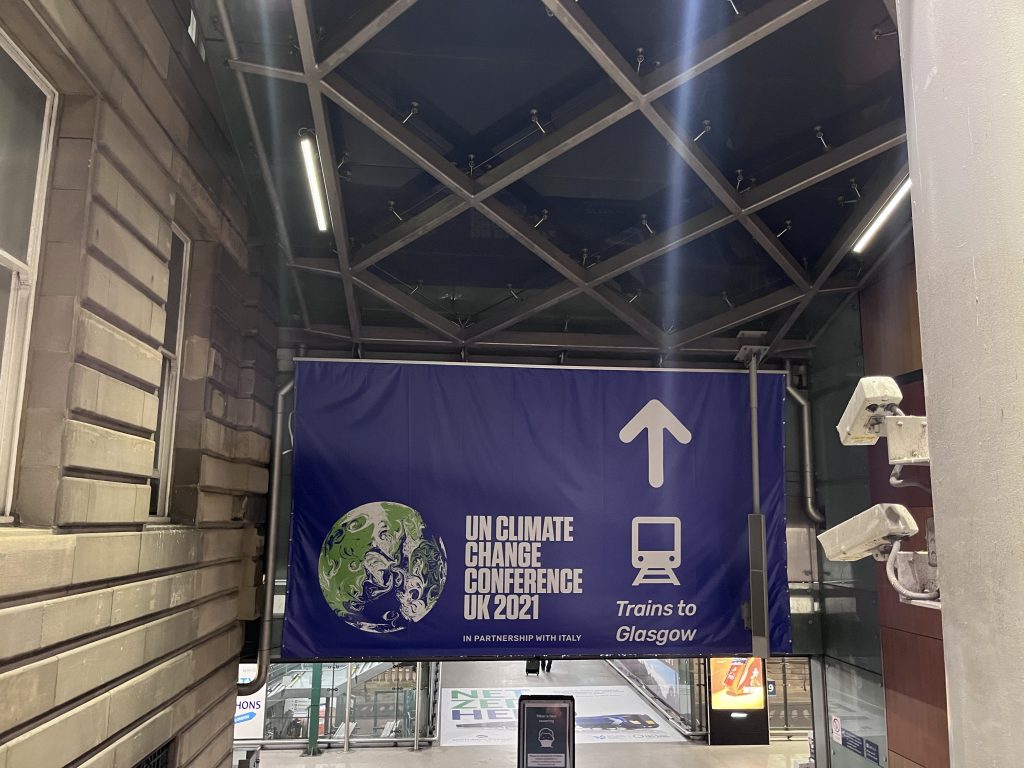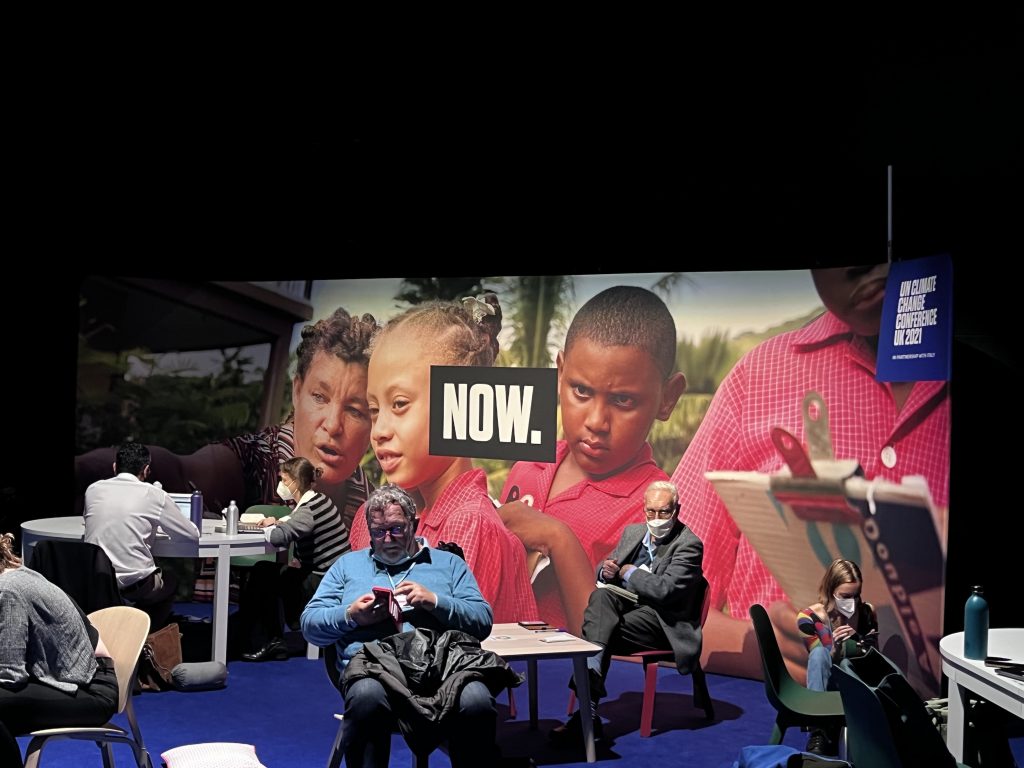The brutalist gray sky served as a less than prosperous introduction to COP26 Week 2. Once inside, the energy of the hallways, meeting rooms, action hubs, and other collaborative spaces proved quite the opposite. At first interaction, the sight of thousands of people is quite unfamiliar given our past and ongoing years within the epoch of global pandemic. Yet, the beauty of the diverse, multinational, and multi-interest individuals brings back the memory and ease of human capacity.
The Side Room events offered an expansive introduction into the multiplicity of climate actions and expertise. The importance of framing climate change within the contexts of plurality allows for the it’s global impacts to meet every individual where they are to mobilize them towards action.

The “Intersectionality at the Nexus of Climate, Human Mobility, Loss and Damage: Regional Perspectives” event was truly out of the norm at COP26. To avoid misrepresenting with objective perspective the nature of the UN and the COP26, we will not create a binary. But, the discussion of anti-colonization, citizen power, standpoint epistemology, local knowledge, intersectionality, and non-Western gender identities shaped a rich and nuanced conversation that rooted the migration caused by climate change as an issue of justice. A community leader from Pakistan spoke on the unjust economies that arise from vulnerability: sex work, child trafficking, human trafficking, slave labor, etc. A community leader from the Bahamas spoke of her organization’s production of a Feminist Standard of Governance that legitimized the experiences of femme-identified Bahamians and undocumented Haitian women who received aid post-Hurricane Dorian. The community leader from Fiji spoke at length about the violent decisions coerced out of third gender indigenous Fijians that remained in their destroyed homes after a recent cyclone, instead of being subjected to the thrashes of the Christian-led disaster shelters. One of the questions posed asked the panelists to respond to the tension of working with vulnerable communities and institutions with the monopoly on disaster response.
In just this one panel the intersections of race, class, colonization, gender, sexuality, economics, justice, human rights, etc. were all discussed and activated by community leaders leading the charge in addressing these issues. The panel evoked a direct quote that shifted much of my understanding of climate migration:
“Migration is not a threat, it is a vulnerability.”
Framing climate migration and (im)mobility as vulnerability, recognizes the constructed, perpetuated, and systemic nature allows for the penetrating fear of inability to be smashed under the imagination of action to keep people in their homes, in their communities, and in their cultures.
The panelists were unafraid to recognize their own intersectionality as privileged individuals, celebrating in the ease, glamour, and heavily removed reality of participating in COP, while communities continue to die and the inaccessibility of the COP to the most vulnerable at this critical moment further undermines the altruistic vision of the UN. I felt at home in this observation. I have been ruminating on my own capacity and the accountability I must hold myself to, as one of few within the world accessing a potentially monumental, but often unimaginative outcome of global climate negotiations.
“Future Lab: Governance – Choose your own adventure” was an interactive session that brought together a variety of experts to provide a case study of decision-making of what economic choices could be made for a hypothetical small village in West Africa. There was an array of insightful points:
“Over governance requires imagination.”
“Integration of generations, particularly young people, is important to think long term and plan our systems to meet the ancestral test.”
“The only way to predict the future is to shape it.”
“Bring in communities to be full experts.”
“We need to have a way to bring the whole system into the room.”
This lab exposed the urgency of redefining, reshaping, and maybe even dismantling global decision-making systems. True to this statement, the middle of this session was interrupted in part by chants outside of the room: “What do we want? Climate Justice. When do we want it? Now!” One of the panelists spoke about her activism and how she feels both within this room and outside of it. The chants in conjunction with the messaging of the UN that has plastered it’s propaganda: “NOW” everywhere.

In keeping with the important insights of the Bahamian panelist to recognize the term ‘intersectionality’ has heavily departed from its intellectual and epistemological origin from a Black feminist scholar, I want to invite readers to contemplate their own urgencies. We are all existing in some pursuit of or from something and that sense of temporal liminality should be our motivation towards creating the kind of material conditions that are critical to us right now.
Where are you? What do you want? When do you want it….